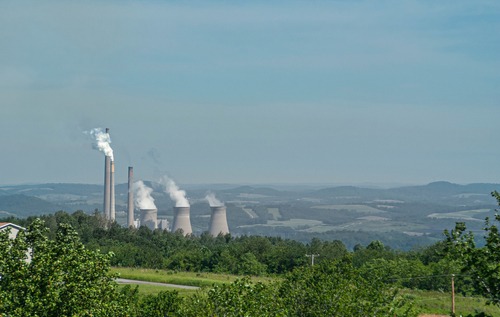
The Pennsylvania House Environmental Resources and Energy Committee, led by Majority Chairman Daryl Metcalfe (R-Butler) voted Wednesday to reject Gov. Tom Wolf’s proposal to enter the state into the Regional Greenhouse Gas Initiative (RGGI).
The Committee’s stance was sent in a letter to the Independent Regulatory Review Commission, which called for a one-year moratorium on the RGGI implementation in February.
“As the standing House Committee with legislative oversight over the Department of Environmental Protection (DEP), it is our role to ensure that regulations proposed by DEP through the Environmental Quality Board (EQB) are consistent with the intent of the Acts on which they are based and proposed in a manner consistent with the law, a standard which this regulation utterly fails,” the letter stated.
In October 2019, Wolf signed an executive order directing the DEP to draft a regulation to join RGGI – a collaboration of 11 Northeast and Mid-Atlantic states – which sets a cap on total carbon dioxide (CO2) emissions from electric power generators in each member state. The DEP issued its draft rule early last year and then collected more than 14,000 public comments, which were used to help develop its final rulemaking, which the EQB voted to adopt on July 13.
“Instead of taking the regulatory review process seriously and deliberatively engaging with the issues that have been raised, DEP has chosen to attempt to finalize a substantively similar regulation to the regulation that it proposed,” the letter stated. “The speed with which DEP has rejected most concerns and brought this regulation back to the EQB, and now to you, after the close of the comment period is an indication of how little DEP values this vital process that we are now participating in. This is particularly true considering the number of comments that they received.”
Since Wolf’s edict, the RGGI proposal has been rejected by three DEP advisory boards. Additionally, Senate Republicans announced in April that they would halt consideration of Public Utility Commission nominees until Wolf withdraws his unilateral decision to join the RGGI compact without legislative approval.
“DEP and the EQB have already committed clear violations of the law during this regulatory process. As we mentioned at the proposed stage, DEP failed to hold the in-person meetings in communities impacted by this regulation that it was required to hold under the Air Pollution Control Act (APCA). In addition, the EQB’s meeting to approve this regulation was held in violation of the Sunshine Act, which requires that meetings of government bodies be open to the public.”
The EQB meeting was streamed online but was closed to the public. The Committee stated that such an action, while necessary during the COVID disaster declaration, was in violation of the law now that the declaration has been terminated. They stated that the violations could have been avoided if DEP was not in such a rush to finalize the regulation, diminishing “the public’s ability to interface with the government entity proposing to regulate them.”
In its letter, the Committee also argued that the EQB and DEP do not have the authority to push through the regulation based on the enormous revenue that will be generated from it.
“RGGI’s auction mechanism clearly represents a tax which only the General Assembly may enact under the Constitution of Pennsylvania,” the letter stated. “The APCA also requires that interstate air pollution control agreements be ‘submitted’ to the General Assembly for its approval, which has not happened here. Additionally, RGGI functions as an interstate agreement or compact, which must under the United States Constitution receive the consent of the United States Congress, which RGGI has not received.”